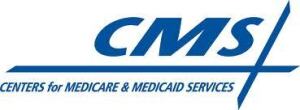By Brendon Nafziger and Loren Bonner
A Medicare advisory panel voted Wednesday there wasn't enough evidence to determine whether the PET amyloid drug Amyvid could help improve outcomes for patients with early signs of cognitive dysfunction. The decision by the panel, called the Medicare Evidence Development & Coverage Advisory Committee, could represent a setback in efforts to get national Medicare coverage for the drug, and potentially others that will be coming down the pipeline for amyloid PET imaging.
The MEDCAC panel only judged evidence for the drug and has no authority to determine if Amyvid should be covered. However, the Center for Medicare and Medicaid Services relies on its advice to inform coverage decisions for new technology or procedures — in this case, with Amyvid for PET beta-amyloid imaging.



Ad Statistics
Times Displayed: 174430
Times Visited: 3180 For those who need to move fast and expand clinical capabilities -- and would love new equipment -- the uCT 550 Advance offers a new fully configured 80-slice CT in up to 2 weeks with routine maintenance and parts and Software Upgrades for Life™ included.
The Eli Lilly & Co. drug received FDA approval last spring. It's used in PET scans to help doctors measure beta-amyloid plaque load in the brain, which is associated with Alzheimer's disease.
According to the language of Amyvid's FDA approval, a positive scan is not diagnostic for Alzheimer's, but a negative scan could help physicians rule out the brain-wasting disease in favor of other types of dementia.
Backers of the agent say it can help change management of patients, but a majority of the expert panelists, made up of radiologists, neurologists and psychiatrists, thought the jury was still out on the drug.
"I just can't connect the dots between the current state of knowledge of the way the test performs and the outcome," Dr. Steve Gutman, a panelist and strategic advisor with Myraqa Inc., said at the meeting. "I don't think you can create a chain of evidence here that works."
In the vote, the panelists gave their confidence rating on the evidence an average of 2.2 on a five point scale, indicating lower levels of confidence. The panel also voted that the uncertainty applied to Medicare-aged populations, too.
"I think it's incredibly important to our patients and our physicians to have a biomarker like this available," said Dr. Jerrold Rosenbaum, the psychiatrist-in-chief at Massachusetts General Hospital. "The question is, this one and now, not whether we need it (in general)."
Skeptics on the panel said they wanted more studies that include enough patients with unexplained mild cognitive impairment, thought to benefit most from the scans, and they also wanted proof that the drug actually changed patient management.
The panel also expressed concern about potential overuse of the scans and the danger that false positives — positive scans of actually healthy people — could needlessly worry patients. "I'm not sure I have enough data to be able to weigh the benefits and harms of this particular technology in terms of that false positive aspect," Dr. Art Sedrakyan, an associate professor at Weill Cornell Medical School and vice-chair of the panel, said.

